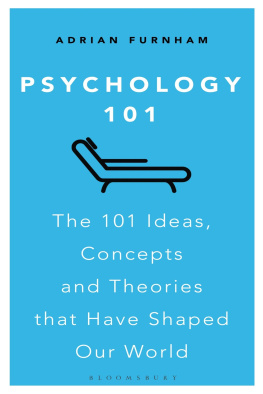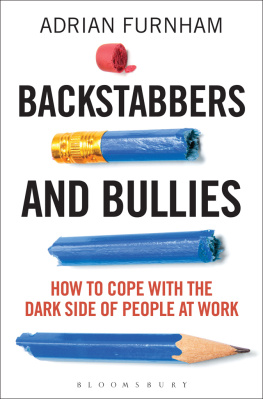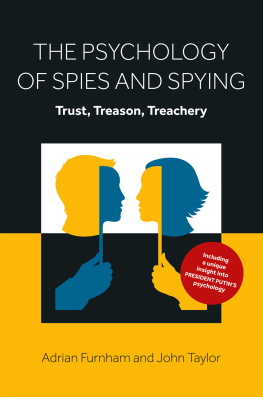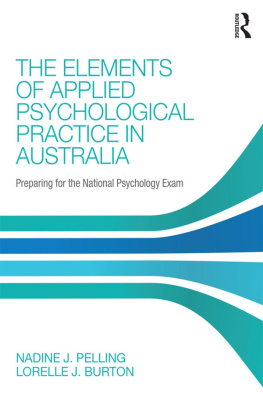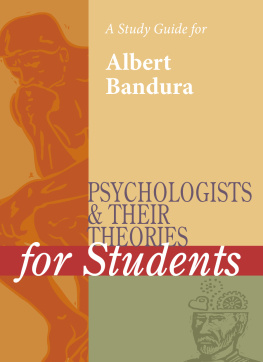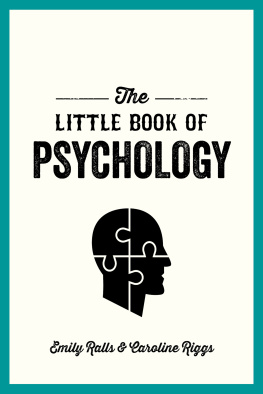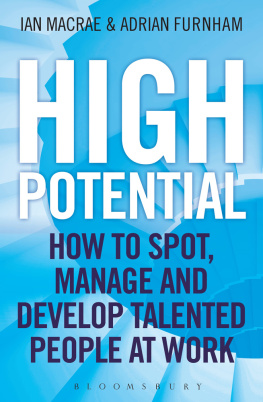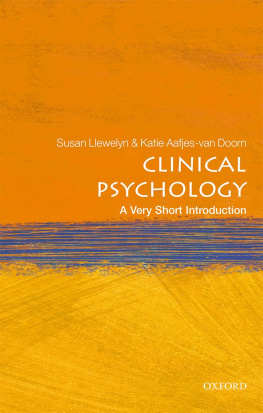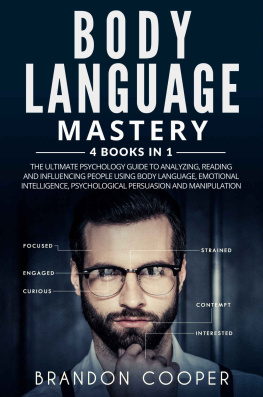
For Alison and Benedict, as ever

Contents
Most people find psychology the most interesting, intriguing and beguiling of the (social) sciences. At its best it gives valid, evidence-based explanations for everyday experiences. Many theories are surprising, some even counter-intuitive. Often the more surprising the explanation the more popular it becomes. This is certainly true of the Freudian explanations for so much social behaviour, which though they fell out of favour, are now on the rise.
Psychology as an academic discipline, as well as a profession, is booming: there are over 100,000 licensed practitioners in America and a similar number of students in Britain, and the American Psychological Association has 55 specialist fields alone. Psychologists have always shone a torchlight, and then a spotlight, into many dark corners of the human mind. They study everything from art preference to altruism; coaching to criminality; jokes and humour to justice and honesty; sexual differences to schizophrenia.
Most, but not all, psychological research is serious, often useful, and occasionally profound. Sometimes researchers have been accused of researching trivial questions, but what is trivial in one generation might not be the same in the next. Students of body language and non-verbal communication were thought of as pursuing a pointless quest in the 1960s but today it forms the fundamentals of understanding human communication. Equally, 20 years ago, psychologists were scorned for studying happiness when it was thought they were meant to be focusing entirely on human misery!
The media loves psychology and psychologists. Newspapers and websites report, often many times a week, on the results of psychological studies. Findings from no other disciplines (consider chemistry, geography and education, for example), with the possible exception of medicine, attract so much journalistic enquiry and debate. This is a double-edged sword for psychologists for two reasons. First, the media often prefers to report more dramatic and sensationalist findings in ways that simplify the research, often with headlines that do not reflect the cautious style of the research psychologist. Second, and perhaps more importantly, it makes psychology often seem like common sense, because people have heard it all before. In fact, psychologists are very interested in common sense itself: What it is and why some people seem to have more of it than others.
These are indeed exciting times. With new techniques and ever more researchers in the field we are making lots of progress in the understanding of human behaviour. Neuroscientists, many of whom trained as psychologists, appear to be on the brink of major new discoveries.
But this does not mean we should neglect the past. Some of the concepts and theories in this book are far from new but have stood the test of time. They continue to reveal some of the most interesting aspects of our thoughts, feelings and public behaviour.
At its best psychology offers clear descriptions and explanations for all sorts of phenomena. Better results can be replicated, theories tested and predictions made. More importantly, psychological research is often aimed at improving lives. Nearly all the applied psychologists e.g. clinical, educational, counselling and work psychologists aim, as a result of their research, to make people more happy and be able to realize their full potential.
Psychology attracts some of the best university students and some of the largest public funding for research. Psychologists are also found in many institutions like schools, hospitals and prisons but also in big corporations and industries, and today their voices are increasingly heard.
Psychologists can also puncture the pretentiousness of pompous pundits. They can and do challenge assertions asking for good evidence. They are fond of asking those does it work questions, whether it is alternative medicine or psychotherapy itself. There are many snake oil sales people offering advice and magical cures which can be challenged by the cool, research logic of experimental psychology.
Of course, they are also far from infallible and also, sometimes, are liable to exaggeration and error. But science and research is self-correcting: and the truth will come out! Some will have heard of the replication crisis, meaning that a lot of important research findings cannot be replicated and may be wrong or exaggerated. Time alone will tell.
This book offers bite-size chunks of psychological science. The choice of topics reflect my own expertise, interest and training. I have written about and researched many of these topics.
The book is a sort of update on my 2008 book, 50 Ideas You Really Need to Know: Psychology , published by Quercus. It has been by far my most successful book, translated into over 30 languages and selling over 500,000 copies. I still see it with some joy at airport bookshops around the world.
There are two differences between this book and the earlier version. First, quite obviously, the book is more than twice as long, with 101 rather than 50 entries. Second, I did not choose those 50 ideas and do not know who did (I seem to recall it was a vice chancellor from Australia). While I thought they represented the full range of psychology, they would not have been my choice. Further, the book was highly structured and formulaic: each chapter had to have exactly 1,350 words, two boxes, three quotes and a time line. This certainly gave the book a nice symmetry and I have tried to retain some aspects of it.
In this new book, I have chosen all 101 topics based on three things: my expertise, my experience of the interests of students and general audiences, and my own curiosity. The topics are highly idiosyncratic but I have road-tested them and people agree for the most part they are very interesting.
So, three reasons for the rather idiosyncratic choice of topics.
First, they are topics I know something about. I have done research and written papers, chapters and books on nearly all of these topics.
Second, I did some market research. I made some lists of 10 to 20 topics at a time and gave them to all sorts of people asking them to rank in order those they would be most interested in reading about. I gave them to friends, fellow passengers on planes and trains, and a few online acquaintances. I included those that were most often highly rated.
Third , I tried to minimize the overlap with the entries in the previous book. I know my choices will frustrate some people for both sins of omission and commission. At least for the former I can start a list for the second edition!
I hope you get as much pleasure from reading it as I have writing it. I hope also that you will forgive any errors of omission or commission, or infelicitous judgements.
Adrian Furnham
London 2020
Accident. Noun. An inevitable occurrence due to the action of immutable natural laws. (Ambrose Bierce, Devils Dictionary , 1906)
My only solution for the problems of habitual accidentsis to stay in bed all day. Even then there is always the chance that you fall out . (Robert Benchley, Chips off the old Benchley )
There are two principal ways of looking at the accident problem:
Theory A : Accidents are caused by unsafe behaviour (and some people are more prone to behaving unsafely than others). Accidents may therefore be prevented by changing the ways in which people behave. This is the concern primarily of personality and social psychology. Theory A focuses on individuals.

